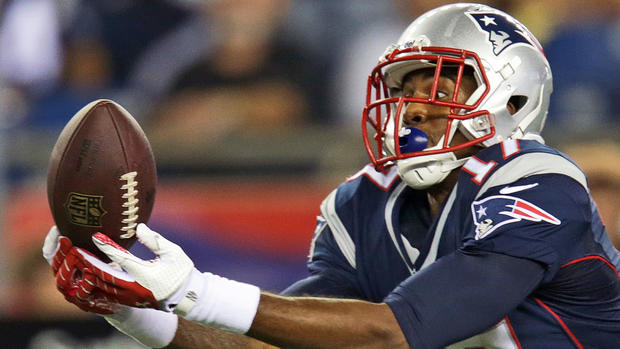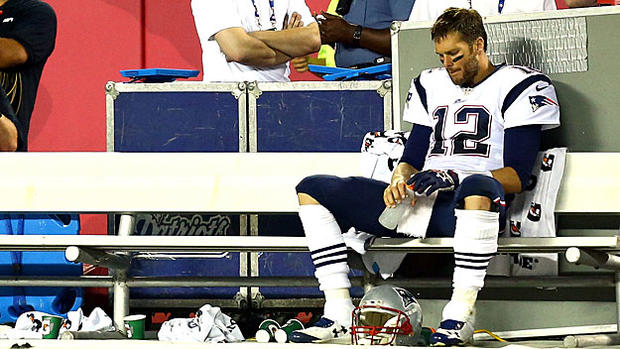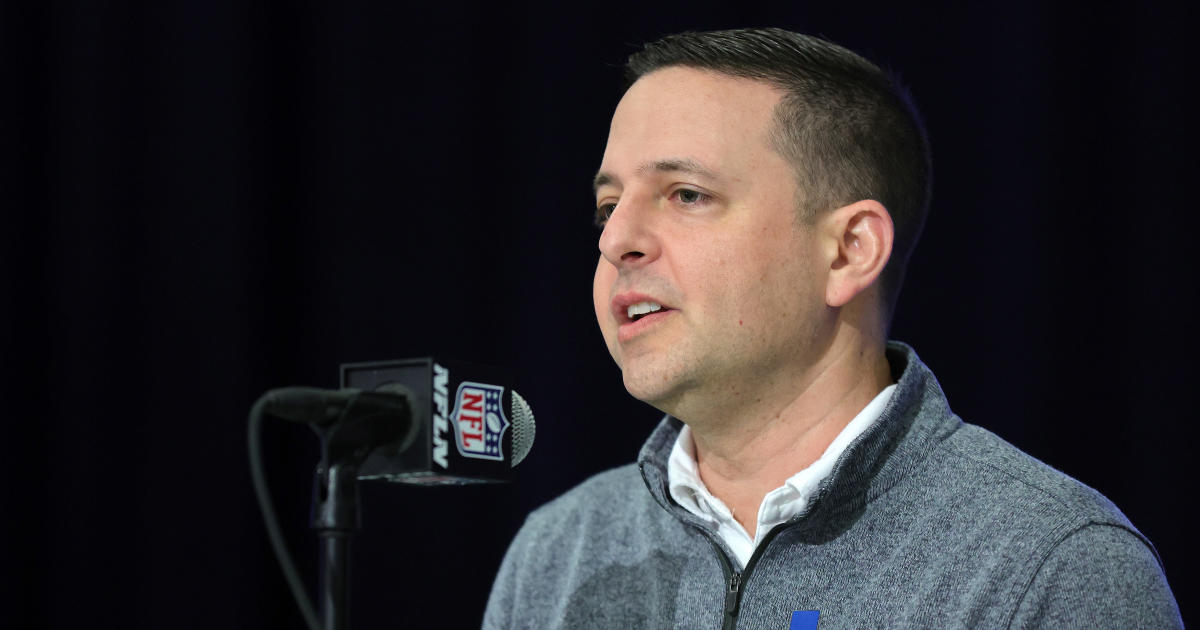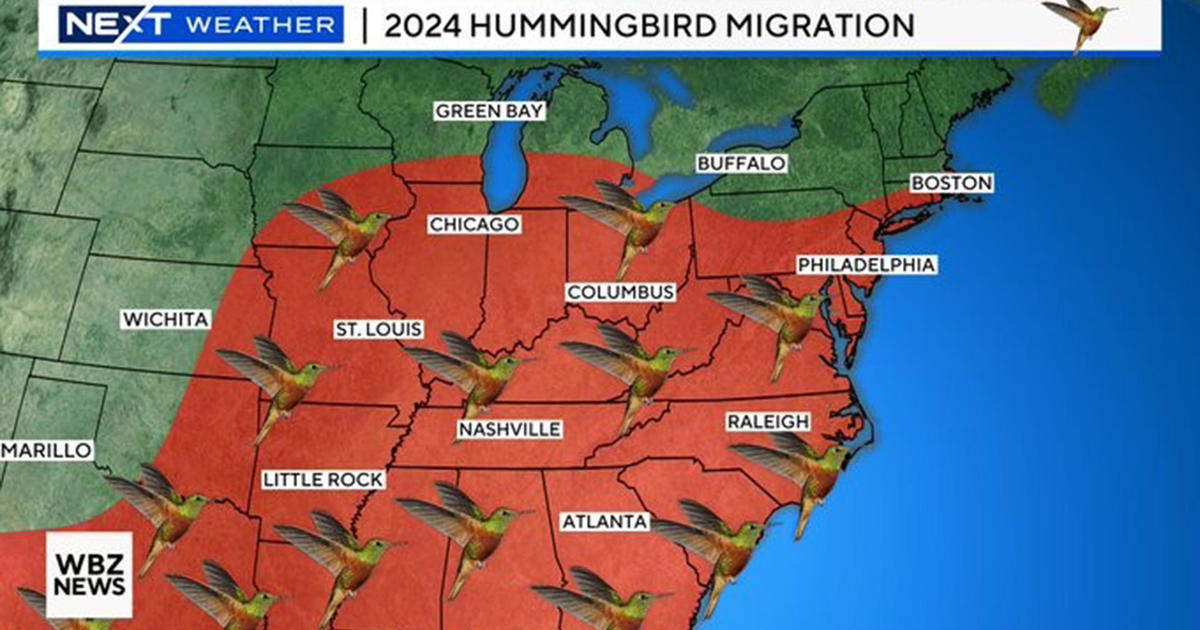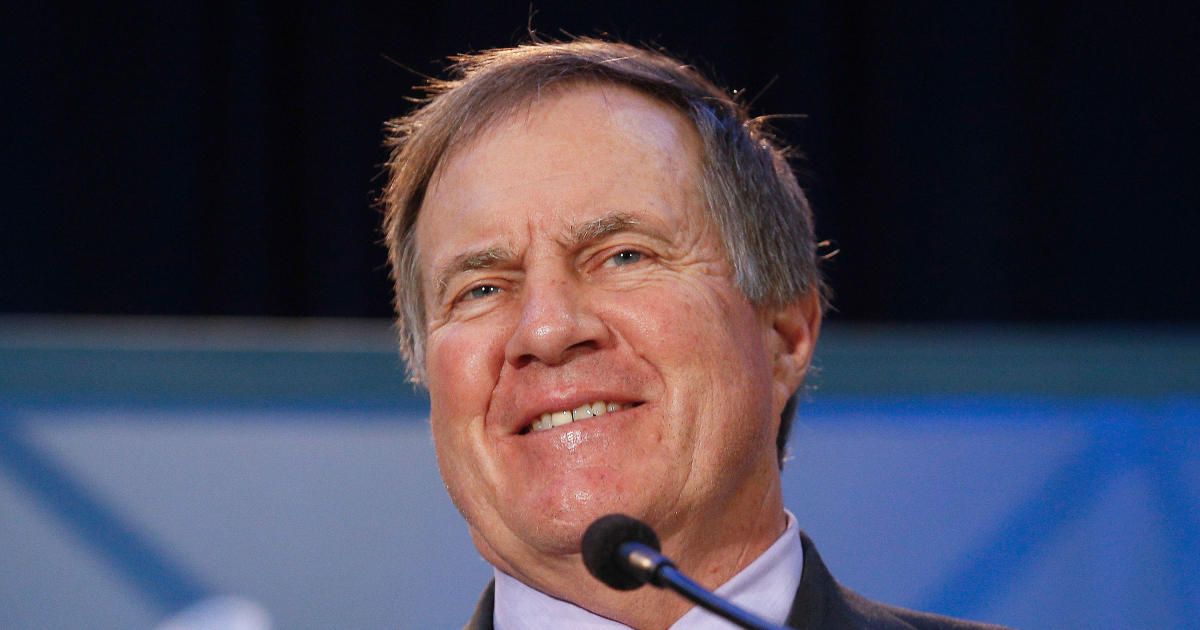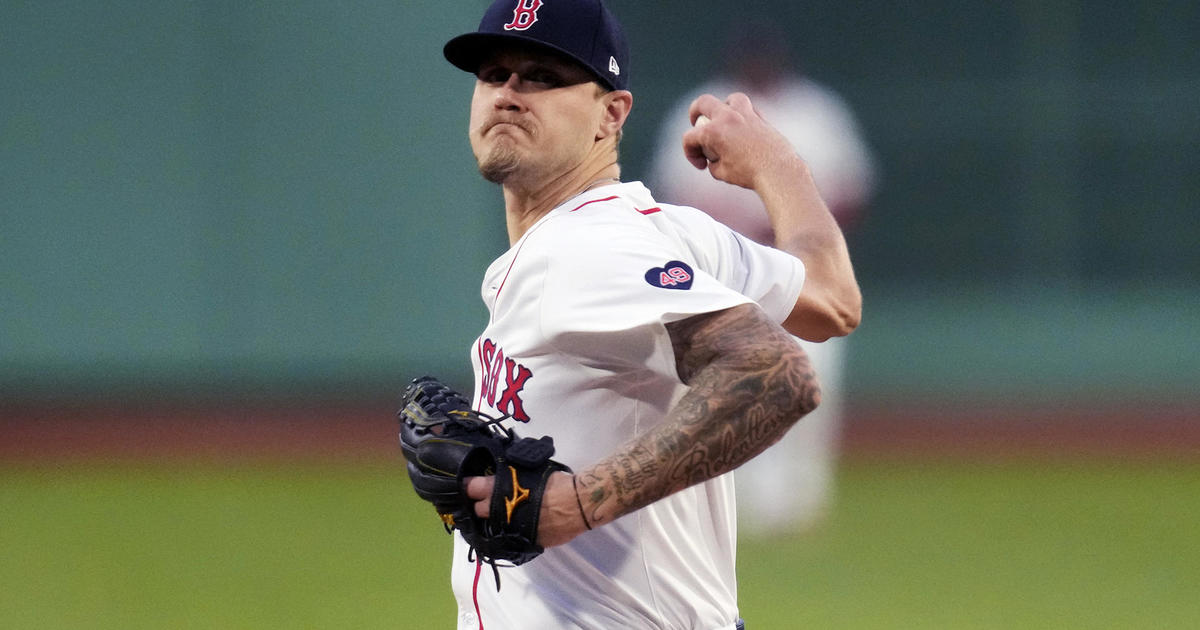Aaron Rodgers' Complaints Draw Parallels To Tom Brady's Patriots Situation At Same Age
By Michael Hurley, CBS Boston
BOSTON (CBS) -- Tom Brady's ending with the New England Patriots wasn't perfect. Obviously.
Yet if you watched Aaron Rodgers' half-hour press conference from Packers camp on Wednesday, it was likely difficult to not draw parallels to Brady at a similar point in his Patriots career. And it's a challenge to not marvel at the fact that the relationship between Brady and the Patriots lasted as long as it did.
Think about it. Rodgers on Wednesday was direct, calm, and unemotional as he laid out a number of reasons for his dissatisfaction with the Packers organization. They pushed good players out, even disrespecting some of them. They didn't reward a strong summer showing from receiver Jake Kumerow. They drafted Rodgers' replacement in Jordan Love. They hesitated to commit long term to the aging QB in his late 30s. And they never sought the advice or input of that quarterback -- one of the best passers to ever play the game -- on anything with regard to roster building.
Kind of sounds familiar, no?
Think back to 2013. The Patriots made it to the Super Bowl in 2011 and the AFC Championship Game in 2012. They weren't perfect, but they were close. Brady restructured his contract, clearing way for the re-signing of the most reliable target of his whole career, Wes Welker. But Belichick didn't want Wes Welker around anymore. Like, at all.
Instead, the Patriots went out and got Danny Amendola -- a good but oft-injured receiver from St. Louis.
The Patriots supplemented Amendola with Aaron Dobson, Kenbrell Thompkins, and Josh Boyce. The team also brought in Tim Tebow for reasons unknown. (Julian Edelman was also on the team, but he had 714 career receiving yards over four seasons to that point. Rob Gronkowski was also coming off injury and suffered another devastating injury during the season.)
Brady was, as you might imagine, not particularly thrilled with the roster construction. At age 36, Brady's championship window was closing. (Or so we thought - ha!) And he was not given a full deck to compete.
That frustration was evident immediately. Week 2, Thursday Night Football. National TV. Brady completed just 19 of his 39 passes -- and 13 of those went to Edelman, who capitalized on the opportunity that year and had his breakout season as a receiver. Brady threw for just 185 yards and one touchdown. The Patriots punted 11 times. They only picked up nine first downs. They gained just 232 yards all game. They scored just 13 points.
They won that game, because Geno Smith was under center for the opponent, but Brady -- and everyone with eyes -- knew that roster was not built to contend for championships.
"It's unrealistic for them to feel like they can do it like 10-year veterans. That's not what they are. But they're trying hard and they work real hard and they have a lot of skill," Brady said that night of his young receivers. "We have a long way to go. No one is coming to [our] rescue and save the day, so we've just got to fight through it."
They did -- admirably. The Patriots had no business making the AFC title game, really, but they made it there. It was in Denver that the receiving group that included tight ends Matthew Mulligan and Michael Hoomanawanui as well as receivers Austin Collie and Matthew Slater proved to be too much of a hindrance for Brady's Super Bowl dreams.
On the other side of the field, Peyton Manning was given an embarrassment of riches by the Broncos' organization. Manning's group included Brady's former favorite target in Welker, obviously, but it also included Demaryius Thomas and Eric Decker at the peak of their powers, plus Julius Thomas (788 receiving yards, 12 TDs) and running back Knowshon Moreno (1,586 yards from scrimmage, 13 TDs). Manning threw for 400 yards against the Patriots on that unseasonably warm day in Denver, and it didn't look like he had to even break a sweat.
Meanwhile, Brady had to work in the AFC Championship Game with Collie, who never played again. And Dobson, who caught 16 passes for the rest of his career. And Slater, who while being a beloved special teamer, only has eight targets in his career.
And then, after all of that, the Patriots went out and drafted the obvious replacement at quarterback in Jimmy Garoppolo in the second round.
It's not apples to apples, no. (Belichick does carry a little more cachet than Brian Gutekunst, Mike McCarthy, and Matt LaFleur combined.) But if anything, Brady might have had much more reason to throw a fit in 2014 than Rodgers did in 2020, when the Packers drafted Jordan Love. The Patriots were essentially concluding that Brady was very close to the end, after not even giving him a representative roster to work with at age 36. And then Belichick dropped the "Tom's age and contract situation" line. And then the Patriots traded away Logan Mankins. And then leaks started coming out about the Patriots handing the reins to Garoppolo "sooner than later."
As you can imagine, Brady was probably having a tough time mentally. For one of the only times of his career, he essentially tapped out in that 41-14 drubbing in Kansas City. He sat on the bench and was, quite simply, pissed.
Now, there were some very handsome, extremely tall, well-liked, highly respected sports writers who saw that Brady wasn't too old or not good enough or anything like that. He was simply put in a situation that was not necessarily conducive to winning championships or performing at his individual best.
He was, in a way, set up to fail.
It is there, one supposes, that the difference between Brady and Rodgers might stand out.
Instead of disappearing for an offseason and letting it be known how much he disliked his GM's decisions and how he felt frozen out of the organization's decision-making, Brady put his head down, improved his mobility, dedicated his entire life to health and fitness, worked with what he had, jelled with his offensive line (which included a rookie center), and had one of the best months of his career. In October 2014, the Patriots went 4-0. Brady completed 69.4 percent of his 144 passes for 1,268 yards with 14 touchdowns and zero interceptions while taking just four sacks. He'd end up capping his season with a legendary fourth quarter performance against an all-time defense from Seattle, sparking his second run of three Super Bowls and cementing his place as the greatest ever.
Does Rodgers have that in him? Probably not. While his season last year was better than most people properly recognize (48 touchdowns and FIVE interceptions -- say it aloud, people!), his offseason of bitter Jeopardy jabs, escapes to Hawaii, passive-aggressive snipes, "Last Dance" memes and the like have led to where he is now. And where he is now doesn't seem great. A Rodgers-Packers divorce after the 2021 season seems to be a certainty.
In a lot of ways, Rodgers' frustration is rooted in very real, valid concerns. Asking the best quarterback in the NFL to make it work with Marquez Valdez-Scantling, Allen Lazard and Equanimeous St. Brown is not good roster management. (Davante Adams is, obviously, one elite receiver, but he's just one man.) Nor is trading up and spending a first-round pick on Jordan Love, who may not even be good. With Rodgers' window closing, as we say, adding someone in the first round who could help the team win would have been prudent. Instead, they took the QB from Utah State. They lost in the NFC Championship Game.
The fact that it was Brady's Bucs who eliminated Rodgers' Packers in Green Bay certainly adds to the twist here. And the fact that Brady threw two fourth-quarter interceptions, but Rodgers led a pair of three-and-outs after both of them? That adds an angle that Rodgers seemingly hasn't properly explored thus far.
Nevertheless, here in New England, we still saw a very similar situation play out. The all-time great QB isn't being listened to, has no input on the roster, has had to see reliable receiver kicked out the door, and is being told to figure it out with not-quite-All-Pro players -- all while staring across the sideline at a fellow Hall of Famer who's surrounded by an incredibly talented group of pass catchers en route to heading to the Super Bowl.
We have seen this show before. It was a different season, with different actors, and slightly different plot points. ("True Detective," season 4, if you will.) But we've seen this program. We know how the finale went with Brady in New England, but it appears as though Green Bay has scripted a different ending for Rodgers.
Could Rodgers -- age 37 -- have handled some things better? Absolutely. Without a doubt. But if you listened to him clearly and calmly lay out all of his issues with the organization and how the organization has largely ignored him for years, you can't help but find some similarities to a situation that played out in front of us here in New England some seven or eight years ago when Brady was the same age.
And while Brady obviously still outlasted the Patriots' expectations for him -- as evidenced by his incredible age 43 season, wherein the Bucs surrounded him with great players and he went ahead and won a damn Super Bowl -- the fact that he and the Patriots were able to get through allllllll of that, win three more Super Bowls, and stay together through the quarterback's age 42 season just seems all the more remarkable.
You can email Michael Hurley or find him on Twitter @michaelFhurley.
